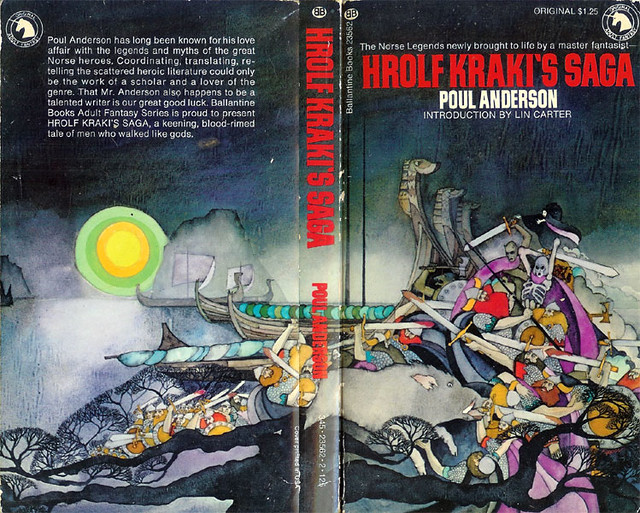edrick
Member
I love Lord Dunsany and his wonderful dreamy writing.

I love Lord Dunsany and his wonderful dreamy writing.
There's loads of recommendations for classic sf in here but when it comes to fantasy it seems people only read modern stuff. I.e. post 1980...but what of the classics...
The only name I can think of is Tolkien
That sounds quite interesting, is it a stand alone novel?I read Anderson's The Broken Sword last week, and I believe it's up there alongside Tolkien. A work that suggests a depth of knowledge and understanding of old myth and saga by Anderson. It reads more like a traditional 'saga' than many new fantasies, with some distance evoked between us and the story, and told in a way that seems almost precis, at times, but with depth of information and thought. This distant third person style gives it a sense of verisimilitude, making it seem like it might have been passed down through the ages, as opposed to invented in the 20th century. In this way, it's much more like Tolkien's The Silmarillion that LOTR or The Hobbit. Excellent stuff, and quite unlike Anderson's usual style.
It is indeed, and not even an especially long one (a fact GRRM might care to consider).That sounds quite interesting, is it a stand alone novel?
I read Anderson's The Broken Sword last week, and I believe it's up there alongside Tolkien. A work that suggests a depth of knowledge and understanding of old myth and saga by Anderson. It reads more like a traditional 'saga' than many new fantasies, with some distance evoked between us and the story, and told in a way that seems almost precis, at times, but with depth of information and thought. This distant third person style gives it a sense of verisimilitude, making it seem like it might have been passed down through the ages, as opposed to invented in the 20th century. In this way, it's much more like Tolkien's The Silmarillion that LOTR or The Hobbit. Excellent stuff, and quite unlike Anderson's usual style.

Ive never heard of this one , wow.One of these days I'll have to revisit Anderson's Hrolf Kraki's Saga, a Ballantine Fantasy Series entry. I read it as soon as it was published, in late 1973, and not since... Shortly afterwards I began to read translations of the sagas -- Laxdaela, Gisli's, Grettir's, etc.

